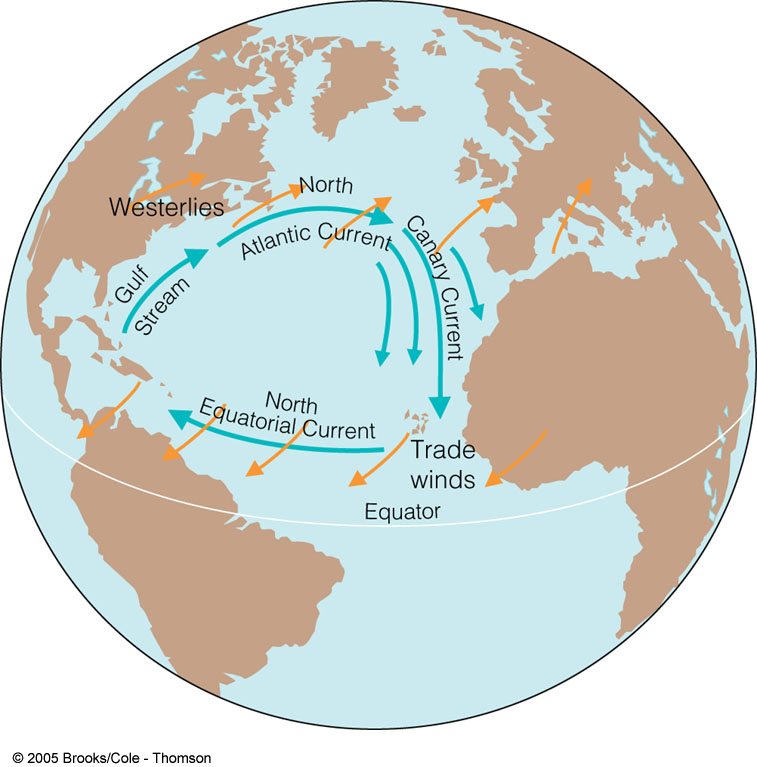This is possible, but rather improbable.
Ancient vessels were very lightly constructed, the usual practice to build the shell of the boat first and the insert ribs and framing, and warships like a trireme are actually very lightly built, so the oarsmen can bring it up to speed rapidly, execute complex manoeuvres and so on. A large storm would be a grave danger to such a ship, and at the first sign of heavy weather the captain wold most likely order the ship to be beached in order to be safe. Since ancient ships also spent most of their time sailing close to shore, and generally beached at night, it would be very difficult for a storm to really pul a ship out to sea. If a ship was to be caught in a storm, then the most likely outcome would be the ship would break up and sink.
Triremes had the added disadvantage of having large crews packed in a very small space, so there was not a lot of on board supplies. Water, in particular, would be a huge issue, and a human being will die after three days without water. A trireme would have over 100 people on board, and contrary to the movies, these were all highly skilled crew members, not slaves (a slave on the oars of a tightly packed rowing bench could cause disruption by not being able or willing to keep up with the ever changing rhythm of the oars as the ship manoeuvred). Throwing the oarsmen overboard to conserve supplies would be problematic, especially since they outnumbered the rest of the crew by a very large margin. A ship adrift under these conditions would probably see a large percentage of the crew die due to thirst, or in a bloody mutiny.
A more probable scenario is a "round ship" carrying cargo and a small crew of professional sailors being blown off course and ending up in the Americas. Since the ship is larger and more stoutly built, it is more likely to survive a storm, and since the crew is small, they can make the supplies last longer (and indeed they may be able to pillage the cargo for extra supplies). Once ashore, they also have the advantages of having trade goods to establish communications with the natives, and sailors in those days would normally also be traders, so able to make sharp deals once ashore.

